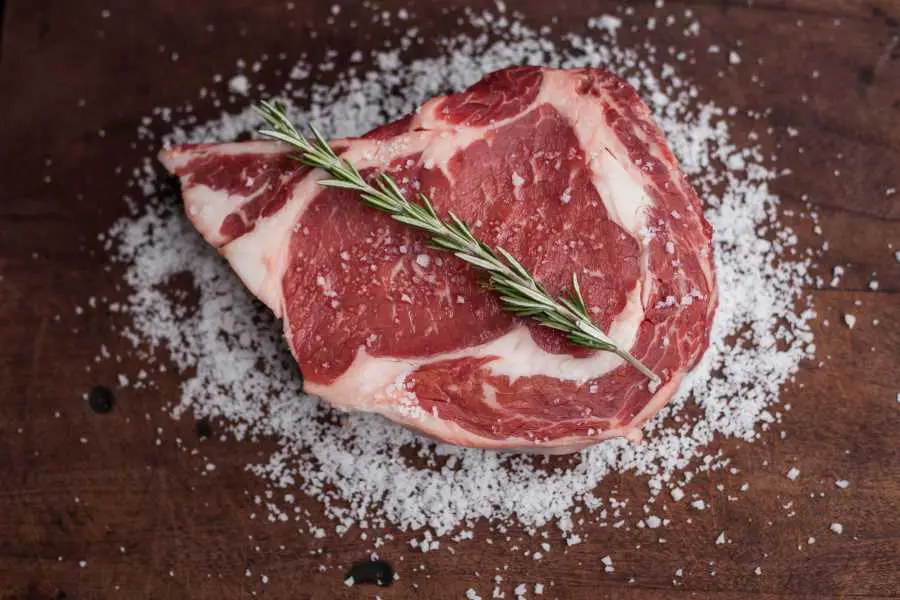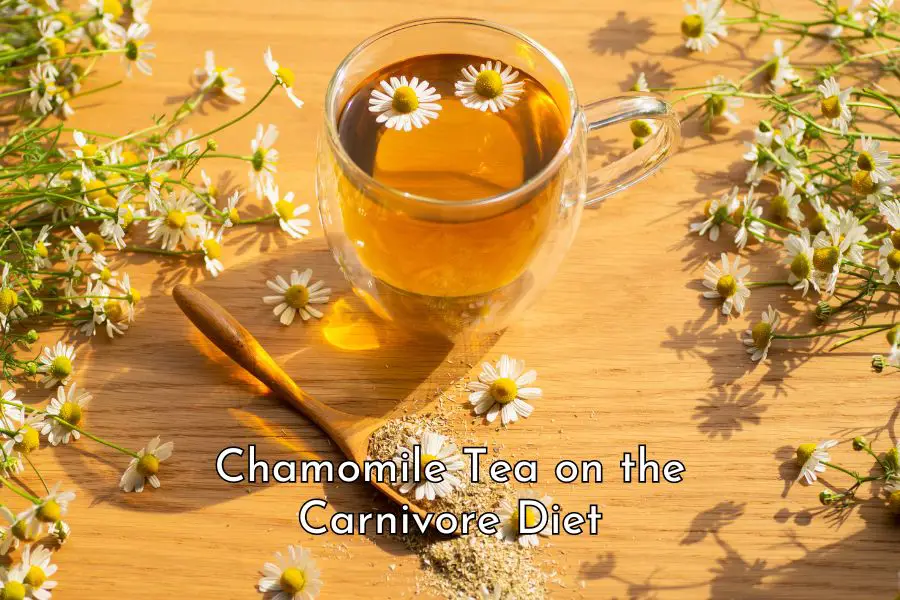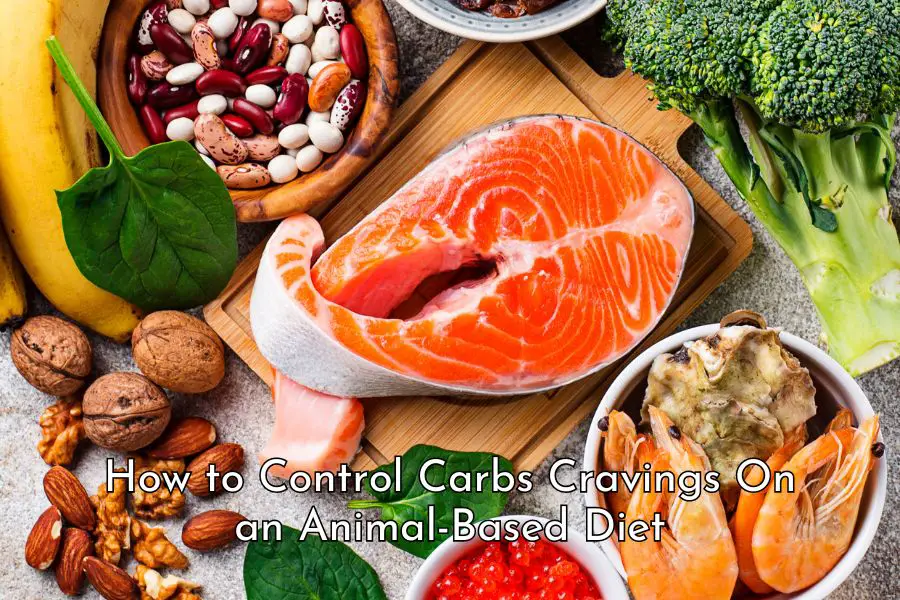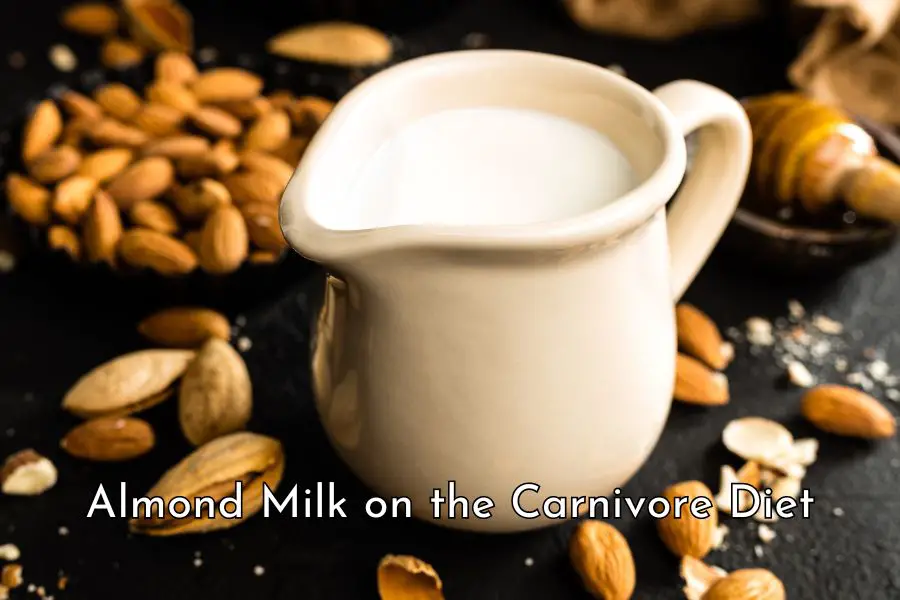You’ve heard of the health benefits of the all-meat diet and want to try it out. Knowing both the pros and cons of the carnivore diet will help with your decision. I’ve done the research for you and here is a short summary.
THE PROS OF THE CARNIVORE DIET
- It provides you with all the nutrients your body ever needs in a highly bio-available form that is free from plant toxins. It also provides an energy source that is metabolically healthy.
- It can help solve many health problems such as inflammation, autoimmune, gut issues, and overweight and obesity.
- It is super simple. Eat animal sourced foods and drink water, full stop. No calorie, macro and micronutrient counting is needed. Shopping and cooking are also quick and easy.
- It is cost-effective. You will save a lot of money on food and drinks by eating this way.
THE CONS OF THE CARNIVORE DIET
- There is a risk of malnutrition if you don’t do it properly, for example, not eating a variety of animal source foods and not eating nose-to-tail.
- There is an absence of dietary acute stressors in the form of plant anti-nutrients which can make your body more resilient and stronger.
- You will be less flexible metabolically if you are on a meat-only diet and have no carb and no plant food for a long time.
- It may be difficult for you to fit in socially.
Read on to find out the pros and cons of the carnivore diet in detail and decide for yourself if this diet is right for you.
The pros of the carnivore diet
1. The carnivore diet gives you all essential nutrients that are free from plant toxins, highly bio-available and metabolically friendly
The carnivore diet provides you with all essential nutrients
Animal sourced foods, which will be your daily staple on the carnivore diet, can provide you with all the nutrients that your body ever needs for its growth and functioning needs.
In particular, the carnivore diet and its animal source foods give you:
- The best source of proteins because they are complete proteins with superior quality.
- Your body needs about 20 different types of amino acids but can only make 11 of them, nine of them, called essential amino acids, must come from food sources. Animal proteins are complete proteins because they contain all nine essential amino acids. Plant proteins, on the other hand, are incomplete because they generally lack one or two essential amino acids. [1]
- Animal proteins also have superior quality compared to plant proteins. They have much higher quality rankings than plant proteins with higher efficiency, biological value, utilization, and digestibility. [2, 3]
- The best source of all essential vitamins and minerals.
- The 13 essential vitamins are vitamins A, C, D, E, and K, and B vitamins (B1, B2, B3, B5, B6, B12, biotin, and folic acid). The essential minerals are calcium, phosphorus, potassium, sodium, chloride, magnesium, iron, zinc, iodine, sulfur, cobalt, copper, fluoride, manganese, and selenium. [4]
- These nutrients are considered essential because they are vital for the normal functioning of the human body but can’t be produced in your body and must be obtained from food.[5]
- Animal-based foods can provide all of the above essential vitamins and minerals in the right ratio and in readily bio-available forms. There is no nutrient your body needs that you can’t find amongst animal source foods, even down to vitamin C. Some nutrients like vitamin B12 and omega-3 fatty acids (EPH and DHA) are not found in plant foods. A deficiency in these nutrients can have adverse effects on cognition and synaptic plasticity.[6]
- The best source of energy. Animal fats can be a great source of fuel for your body. Contrary to what you have heard all your life or been told by your doctor, there is no association found between dietary fat and mortality from all causes of death. Animal fats are also a better source of energy compared to carbohydrates which are found to be linked with an increased risk of metabolic syndromes. [7, 8, 9, 10]
The carnivore diet is free from plant toxins
The carnivore diet, by definition, is free from plant toxins.
While you can get all nutrients from plants, except for vitamin B12 and omega-3 fatty acids, nutrients in plants come with plant anti-nutrients or natural pesticides that plants use to protect themselves from predators. Consuming plant-based foods means exposing yourself to these natural pesticides which can have detrimental effects on your health.
Below are some plant anti-nutrients and their potential adverse effect on human health: [11, 12, 13 14, 15, 16, 17, 18, 19]
Lectins
Found in wheat, beans, quinoa, peas, lentils and peanuts, lectins can bind to carbohydrates and interfere with the absorption of minerals (calcium, iron, phosphorus, and zinc). With sufficient quantities, lectins cause holes to develop in the gut wall, causing intestinal permeability or leaky gut syndrome. Lectins can also cause autoimmune diseases.
Tannins
Found in grapes, green tea, pomegranates, persimmons, tannins are a type of polyphenols that produce an astringent or bitter taste. Tannins bind and precipitate proteins. They also bind with digestive enzymes and can interfere with digestion. Tannins are used in the leather industry because of their unique property to bind with proteins and prevent the disintegration of the collagen fibers of the hides, transforming them into workable leather.
Phytic acid
Phytates can be found in seeds, grains, nuts and legumes. Herbivores can digest phytic acid but humans can’t. Once consumed, phytic acid binds to minerals like phosphorus, iron, zinc, magnesium, and calcium and prevents absorption. A diet high in phytic acid can easily lead to a mineral deficiency for this reason. Phytates also inhibit digestive enzymes like pepsin, trypsin and amylase.
Oxalate
Cruciferous vegetables (e.g. kale, radishes, cauliflower, broccoli), as well as chard, spinach, parsley, beets, rhubarb, black pepper, chocolate, nuts, berries and beans, are some of the foods high in oxalates. Once consumed, oxalate binds with calcium and other minerals to form oxalate crystals, the main ingredient in kidney stones. Oxalate crystals can cause damages to the eyes, immune system, neurological system, GI tract, and connective tissues.
Most people can handle oxalate-rich foods well. However, in sensitive people, small amounts of oxalates can cause serious symptoms like burning in the eyes, ears, mouth, and throat, and large amounts may cause abdominal pain, muscle weakness, nausea, and diarrhea.
For more detail information on plant anti-nutrients and phytonutrients, please read this post.
The carnivore diet food is highly bio-available
Foods on the carnivore diet are highly bio-available because there are no anti-nutrients like in the case of plant foods that bind to nutrients and prevent absorption.[20] For example, spinach is high in calcium as well as oxalate and the calcium in spinach is bound to its oxalate. Therefore, when you eat spinach, only about 5% calcium is actually absorbed by the body compared to about 30% with dairy products.[21]
Your body also produces its own natural enzymes to break animal foods down rather than relying on intestinal bacteria to help digest as is the case with plant foods. This results in virtually no gases produced during the digestive process.[22]
Here is a story of a man who lost his intestines after a series of blunders by medical professionals. What he was left with was about ten inches of small bowel which was formed into a jejunostomy. As a result, he was able to see what passed directly out of his stomach into an ostomy bag.
As an experiment, he once swallowed the largest chunks of meat he possibly could get down without choking and two hours later observed no undigested meat. What he found always clogged the ostomy tube were pieces of undigested vegetables, entire pieces of olive, lettuce, broccoli florets, grains, and seeds.
The carnivore diet food is metabolically friendly
When you are on the carnivore diet, you will get energy mostly from fat as opposed to carbohydrates on the standard American diet.
Fat is a much better source of fuel for your body because you can avoid the risk of metabolic syndrome, a condition characterized by disturbed glucose and insulin metabolism, central obesity, mild dyslipidemia, and hypertension, which is found to be positively associated with carbohydrate intake.[23, 24]
When you consume foods containing carbohydrates, your body turns carbohydrates into glucose which then enters the bloodstream. When blood sugar levels rise, insulin is released to transport glucose into your cells to be used for energy or stored as fat if there is excess energy coming in. If you consistently consume carbohydrates (e.g. cereals, bread, pasta, sugary drinks and other highly processed foods) that causes blood sugar spikes over time, your cells will stop responding to insulin properly, i.e. they have become insulin resistant. This can cause a whole host of issues like inflammation, hormone disruption and other chronic conditions. [25]
In contrast, when you are eating animal-based foods only which are high in quality protein and saturated fat with a high satiety level, there is a very little amount of carbs and less craving. Accordingly, there won’t be regular blood glucose spikes and you will eliminate the root cause of insulin resistance.
In an editorial for Open Heart, Dr DiNicolantonio noted that:[26]
the global epidemic of atherosclerosis, heart disease, diabetes, obesity and the metabolic syndrome is being driven by a diet high in carbohydrate/sugar as opposed to fat, a revelation that we are just starting to accept
2. The carnivore diet solves many health problems
The carnivore diet can help with many health problems such as inflammation, autoimmune, gut issues, overweight and obesity, mental clarity, poor sleep quality, and low energy.
Because the carnivore diet has only recently become popular, not much independent research has been done about its health implications. Claims of its health benefits are mostly based on anecdotal evidence.
If you would like to read these anecdotes, two sites below are the best sources:
- zerocarbzen.com run by Esmée La Fleur who started the carnivore diet for health reasons. Esmée has interviewed around 40 people who were on the carnivore diet for at least one year, some for a lot longer. These people reported many health benefits thanks to the carnivore diet. You can read their interviews here.
- meatrx.com run by Dr Shawn Baker, an orthopedic surgeon and advocate of the carnivore diet. There are hundreds of videos and success stories by people who have been on the carnivore diet. You can view and read their stories here.
3. The carnivore diet is super simple
Try it for yourself and you will find that the carnivore diet is the simplest of all the diets you’ve ever been on. This is because:
- You don’t need to count calories. Although animal source foods are high in calories, they are very satiating and there is very little risk of overeating. Just eat when you feel hungry and your body will tell when you should stop.
- You don’t need to count macro and micro nutrients. Animal source foods are the most nutrient-dense foods. If you eat a wide variety of quality animal foods, you will get all nutrients for your body’s functioning needs (for more information on the superior quality of animal source foods, please read this post).
- Shopping for foods on the carnivore diet is quick and easy, the fresh produce section will cover all your needs and you can be in and out of the shop in under 15 minutes.
- Cooking on the carnivore diet is also super quick and easy. Say goodbye to recipes with 10 or 20 ingredients and lengthy instructions. Most carnivore dishes will require just two ingredients: meat and salt. You will find that food is just sustenance and not entertainment and you no longer crave snacks and treats like you used to.
4. The carnivore diet is cost-effective
A rib-eye steak carnivore diet will certainly be expensive, but if you can’t afford it, you can do it cheaply. Ground beef, offcuts, organ meat, eggs, canned fish, and bones are all very cheap.
Kelly Hogan, a long-term carnivore diet dieter, said that she ate whatever was cheap which was almost always commercially-produced, grain-finished beef and that she mostly ate ground beef/ burger patty for the last ten years.
You will also save all the money that you used to spend on drinks and snacks.
And if your health improves like many others have found, you will also save money on health care costs.
I personally find that when I cut out most of the plant foods, our family food bills go down substantially without trying.
If you are a on a budget, please check out this post on why going on the carnivore diet can reduce your food bills and tips to save money without compromising on nutrition.
The cons of the carnivore diet
1. Risk of malnutrition if not done properly
Like any other diet, there is a risk of malnutrition if you don’t do the carnivore diet properly.
In particular, if you only eat meat and drink water and don’t incorporate organ meat, don’t eat a variety of animal source foods, or follow a ‘cheat’ carnivore version by consuming mostly processed meat, you may be at risk of malnutrition. Below are a few examples of potential nutrient deficiency:
Vitamin C
Vitamin C deficiency is a very serious medical condition. This is because of the vital role vitamin C plays in the synthesis of collagen, the most abundant protein in the human body that can be found in blood vessels, skin, connective tissues, bones, and muscles. Vitamin C is also needed in the synthesis of dopamine, norepinephrine, epinephrine, and carnitine. It is widely known as a powerful antioxidant, plays an important role in immune function, and improves the absorption of nonheme iron.[27, 28, 29, 30]
The vitamin C content of animal foods is very small compared to that of many plant foods. Although small, the vitamin C in animal foods appears to be sufficient to meet your body’s needs to avoid scurvy (see this post for more detail).
However, because vitamin C is easily destroyed by heat, if you mostly eat well-cooked meat, there would be very little vitamin C remained. Furthermore, organ meats are packed with essential nutrients and have a much higher vitamin C content than muscle meat, if you don’t eat nose-to-tail, you are at risk of not getting sufficient vitamin C.
Omega 3
Omega 3 fatty acids are critical for your health because they are an integral part of cell membranes throughout the body and are important for eye, brain, heart, joint, and mental health. However, your body can’t make and must get these fatty acids from food. [31, 32]
Seafood is the best source of omega 3 fatty acids. A 100 grams or 3.5 oz serving of grass-fed beef will give you only 80 mg of omega 3, whereas the same serving of salmon, herring, and sardine has a whopping amount of 2,260 mg, 2,366 mg and 1,480 mg respectively. [33, 34]
If your carnivore diet consists of only beef and water and no seafood, you are at risk of not getting sufficient omega 3 fatty acids.
Calcium
As can be seen in the table below, meat, poultry and eggs have very little calcium. [35]
| 100 g serving | Calcium | %DV |
|---|---|---|
| Pork chop | 8 mg | 1% |
| Beefsteak | 16 mg | 2% |
| Lamb chop | 20 mg | 2% |
| Bison steak | 6 mg | 1% |
| Chicken | 14 mg | 1% |
| Egg, whole | 56 mg | 6% |
If the above is your staple foods on the carnivore diet, you are unlikely to meet your recommended intake of around 1 gram of calcium a day. [36]
Calcium is important because it is needed for many bodily functions and used as the main material for teeth and bone formation.
It is therefore important to incorporate calcium-rich foods in your diet, for example, dairy products and/or fish with bones in, or make your own calcium supplements from eggshell and bones (see this post for detail).
Folate
Folate deficiency can cause anemia which is a condition where your body makes fewer red blood cells than normal. Children of mothers with this condition can have an increased risk of being born with neural tube defects. [37, 38, 39]
There is not much folate in meat but organ meat and eggs are rich in folate. For example, 100 grams of beef steak has only 13 mcg of folate whereas 100 grams of beef liver has 290 mcg of folate, delivering 72% of the RDI. [40]
This emphasizes the importance of eating a wide variety of animal source foods to get all essential nutrients to meet your body’s needs.
Vitamin A
Vitamin A is important for vision, immune function, reproduction, and cellular communication. Similar to folate, meat has very little vitamin A but organ meat like the liver is a rich source of vitamin A. One small slice of beef liver is enough to deliver the daily recommended intake of vitamin A. Other sources of vitamin A are seafood, eggs, and dairy products. [41, 42, 43]
If you only eat meat and not much else, there is a risk that you don’t get enough vitamin A in your diet.
2. Missing out on dietary acute stressors
Although animal source foods can provide you with all nutrients that your body needs, some argue that plant foods with their anti-nutrients can act as acute stressors to make your body more resilient and stronger.
When you consume plant-based foods, anti-nutrients present in those foods actually cause inflammation in your body. In response, your body produces its own antioxidant called glutathione to reduce inflammation. Over time, your body will adapt to those hormesis stressors and become stronger.
If you can’t handle even a small amount of plant foods for health reasons, there are a number of alternatives to getting those acute stressors to build a stronger body from non-plant sources (see this post for further detail):
- Physical exercise
- Cold exposure
- Heat exposure
- Immersing in nature.
3. Metabolic flexibility is reduced
Imagine a scenario where you’ve been eating meat only for 20 years and for some reason (e.g. in an S.H.T.F. scenario) you suddenly don’t have access to your usual steak, eggs, organ meats, and bone broth anymore. You will be faced with two choices: i) eat plant foods, if they are available, to survive, or ii) refuse to eat and die.
If you decide to eat plant foods again after such a long period of time, you will feel very unwell initially because you’ve lost the metabolic flexibility of being able to handle both animal and plant-based foods. It will take some time for you to adapt to plant foods again.
I know this is an extreme scenario but one can never say never.
What you could do to maintain metabolic flexibility is occasionally eat a small amount of plant foods that are in seasons but be mindful of plant toxins and learn ways to reduce the toxic load from plant foods by:
- Soaking grains, nuts, seeds, and beans can help deactivate enzyme inhibitors, however, lectin is not affected by this method of deactivation
- Fermenting can reduce anti-nutrients like phytic acid, polyphenol, cyanide, oxalate, trypsin inhibitor, protease inhibitor, and tannin
- Sprouting can reduce anti-nutrients like phytate, trypsin inhibitor, amylase inhibitor
- Cooking whole grains, beans and vegetables can reduce certain anti-nutrients such as phytic acid, tannins, and oxalic acid. [44]
4. Difficult to fit in socially
In the age of plant-based everything and the ‘Meat Free Monday’ movement, it is not easy to fit in when you are amongst a tiny minority following the carnivore diet.
If you can’t convince your whole family to be on the carnivore diet with you, you will be eating different foods from the rest of the family at the dinner table, or you won’t be eating with them much at all. When on the carnivore diet, you’ll find that you won’t feel hungry very often and probably will only eat one to two meals a day and hardly snack at all between meals.
You probably will have no issue telling your friends and colleagues that you are now a vegan or a vegetarian. However, I bet you will be hesitant telling them that you are now on a meat-based diet! You will surely be bombarded with questions about your dietary choices. Some may be genuinely concerned about your health. However, some may be agitated or hostile. If you are vocal about your choice, you may be facing backlash from vegan or vegetarian advocates.
Conclusion
In this article, I’ve set out a detailed list of the pros and cons of the carnivore diet as objectively as I can. Like many of you, I am only learning about this diet, please let me know if you think I’ve left out something important.
My goal in writing this article as well as running this site is not to persuade you to start the carnivore diet.
My goal is to provide as much as possible and as accurate as possible all information about the carnivore diet so that you can make an informed decision that is best for your health.
If you are feeling great on an omnivore diet, have no apparent health issues and there are more important things in life for you to pursue than tinkering with your diet, then don’t.
On the other hand, if you have health issues that modern medicine just can’t seem to figure out and help you with, you may want to try out this crazy diet and see if it helps. If you end up feeling great on this diet, N=1 is all that matters and N=50,000 epidemiological study findings are irrelevant. Who can argue with your success? It’s your life, it’s your choice after all.
If you find this post helpful, please consider sharing this post and my site with your family, friends, and followers. That would be much appreciated. Please also check out my library of articles on the carnivore diet here which is updated regularly.
Disclaimer: The information in this post is for reference purposes only and not intended to constitute or replace professional medical advice. Please consult a qualified medical professional before making any changes to your diet or lifestyle.
Photo credit: Edson Saldana on Unsplash





